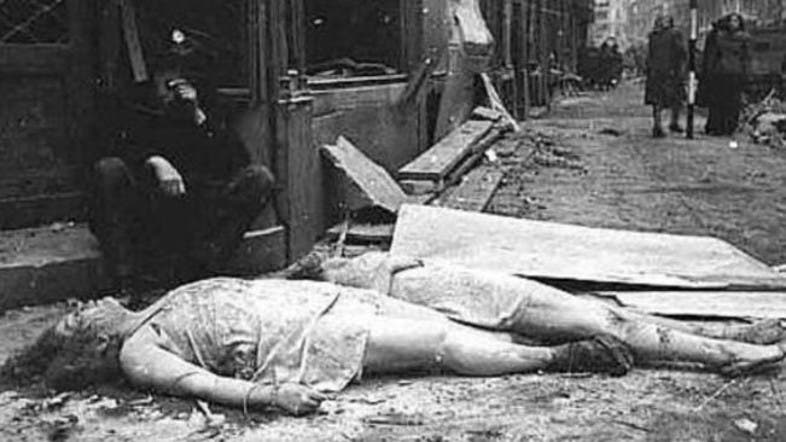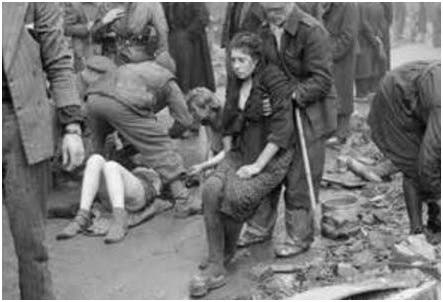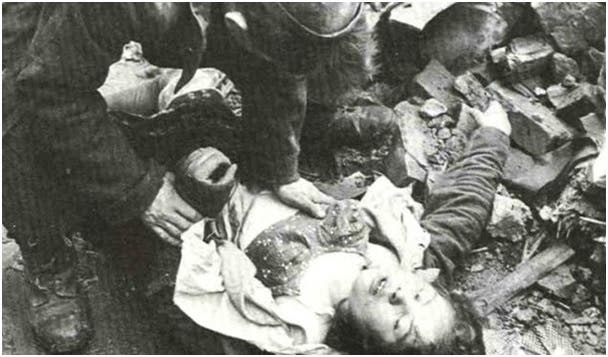a perfect case for the
Hague ?
"
Between the months of January and August of
1945, Germany saw the largest incident of mass rape known in history, where an estimated two million German women were raped by the Soviet Red Army soldiers, as written by Walter Zapotoczny Jr. in his book, ‘
Beyond Duty: The Reason Some Soldiers Commit Atrocities’.
Between the months of April and May, the German capital Berlin saw more than 100,000 rape cases according to hospital reports, while East Prussia, Pomerania and Silesia saw more than 1.4 million rape cases.
Hospital reports also stated that abortion operations were being carried out daily across all German hospitals."
Natalya Gesse, who was a Soviet war correspondent at the time, said that the Soviets didn’t care about the ages of their victims. “The Russian soldiers were raping every German female from eight to eighty. It was an army of rapists,” she said.
This caused the deaths of no less than 200,000 girls and women due to the spread of diseases, especially that many eyewitnesses recounted victims being raped as much as 70 times in that period.
Our fellows were so sex-starved,” a Soviet major told a British journalist at the time, “that they often raped old women of sixty, seventy or even eighty - much to these grandmothers’ surprise, if not downright delight.”
In his book, Zapotoczny said that even female Russian soldiers did not disapprove of the rapes, some finding it amusing.
In 1948, rape cases decreased vastly after Soviet troops were ordered back to their camps in Russia and left residential areas in Germany.
IN PICTURES: How German women suffered largest mass rape in history by Soviets



